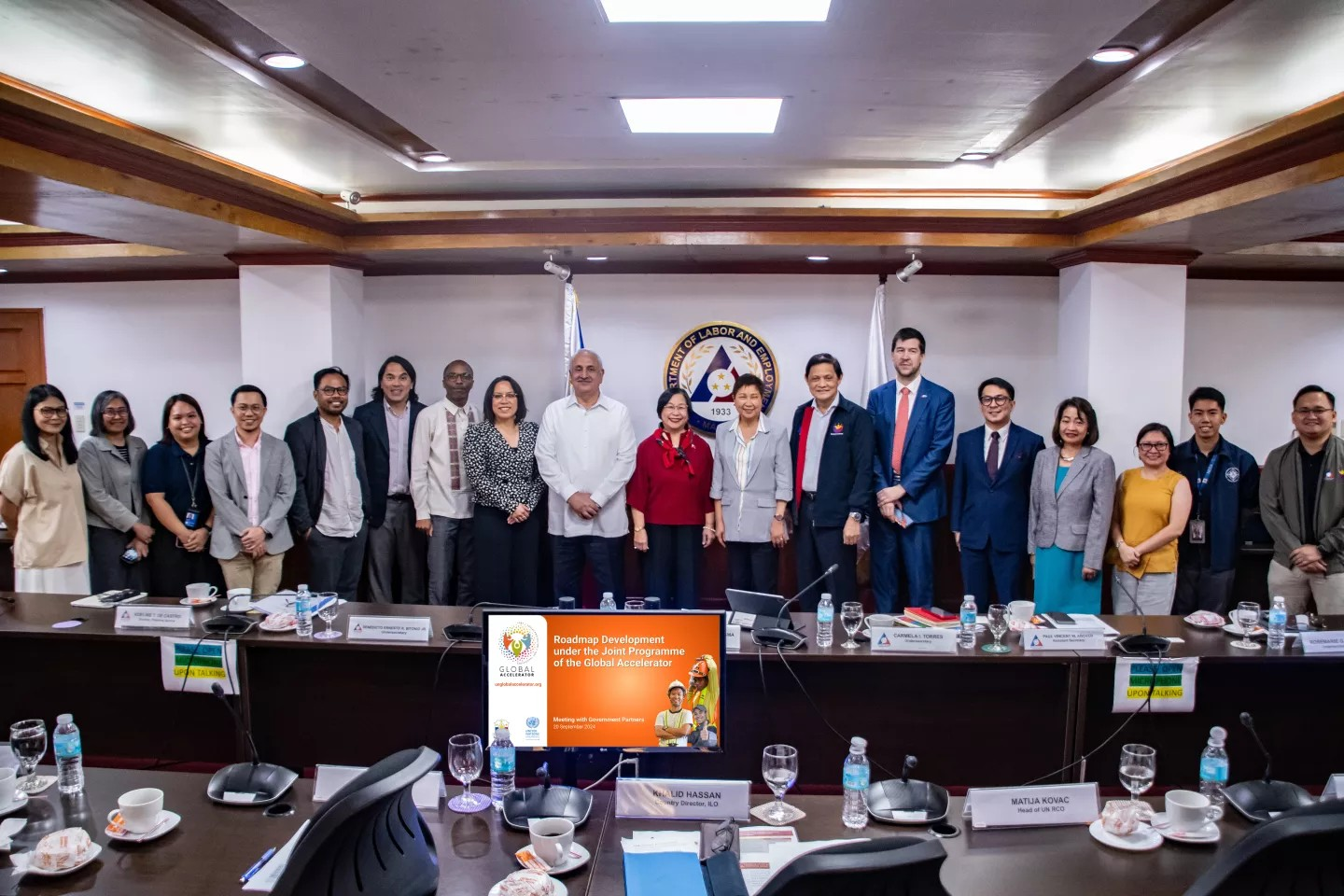On 20 September 2024, the government of the Philippines, along with the UN agencies and other stakeholders convened to initiate and agree upon the development of a national roadmap for the implementation of the Global Accelerator on Jobs and Social Protection for Just Transitions.
The Philippines became a pathfinder country of the Global Accelerator in March 2024 demonstrating a high-level commitment to amplifying investments in jobs and social protection by supplementing the country’s efforts in realizing the aspiration of full, decent and productive employment for every Filipino. The Philippines is starting to develop its national roadmap which will outline the policy reforms and programmes on social protection, employment, and sectoral and macroeconomic policies tailored to the national context and priorities.
The Department of Labor and Employment (DOLE), the National Economic and Development Authority (NEDA), and the Department of Trade and Industry (DTI) have discussed the next steps and timeline for the roadmap development, ensuring it aligns with the Trabaho Para sa Bayan Act Plan (TBP), which is the country's master plan for employment generation and recovery. At the outset, the government’s efforts will be supported by a UN Joint Programme funded by the Joint SDG Fund, supporting the acceleration of Decent Job Creation and Enhancing Social Protection for Just Transitions in the Philippines under the leadership of the UN Resident Coordinator.

During the 4th Steering Group meeting of the Global Accelerator that took place from 1-2 October 2024, Ms. Carmela Torres, Undersecretary of the Employment and Human Resource Development Cluster at the Department of Labour and Employment of the Philippines, highlighted the importance of developing the roadmap through multi-stakeholder consultations and coordinated actions to ensure support and ownership.
Ms. Torres highlighted that the existing inter-agency council of Trabaho Para sa Bayan will act as the national steering committee for the Global Accelerator, aligning national plans with Global Accelerator goals to foster a comprehensive approach to decent job creation and the extension of social protection. She emphasized the inclusivity of the governance structure proposed for the Global Accelerator, which actively engages social partners and ensures representation from marginalized and informal sectors.
The sectors to be targeted by the initiative are expected to be construction and transport.